Using your Apple Watch with your iPhone can help you take full advantage of its various features. With security in mind, you can always set a passcode to prevent others from accessing it. However, constantly entering your passcode can be a pain. To avoid this, you can enable (or disable) wrist detection on your Apple Watch.
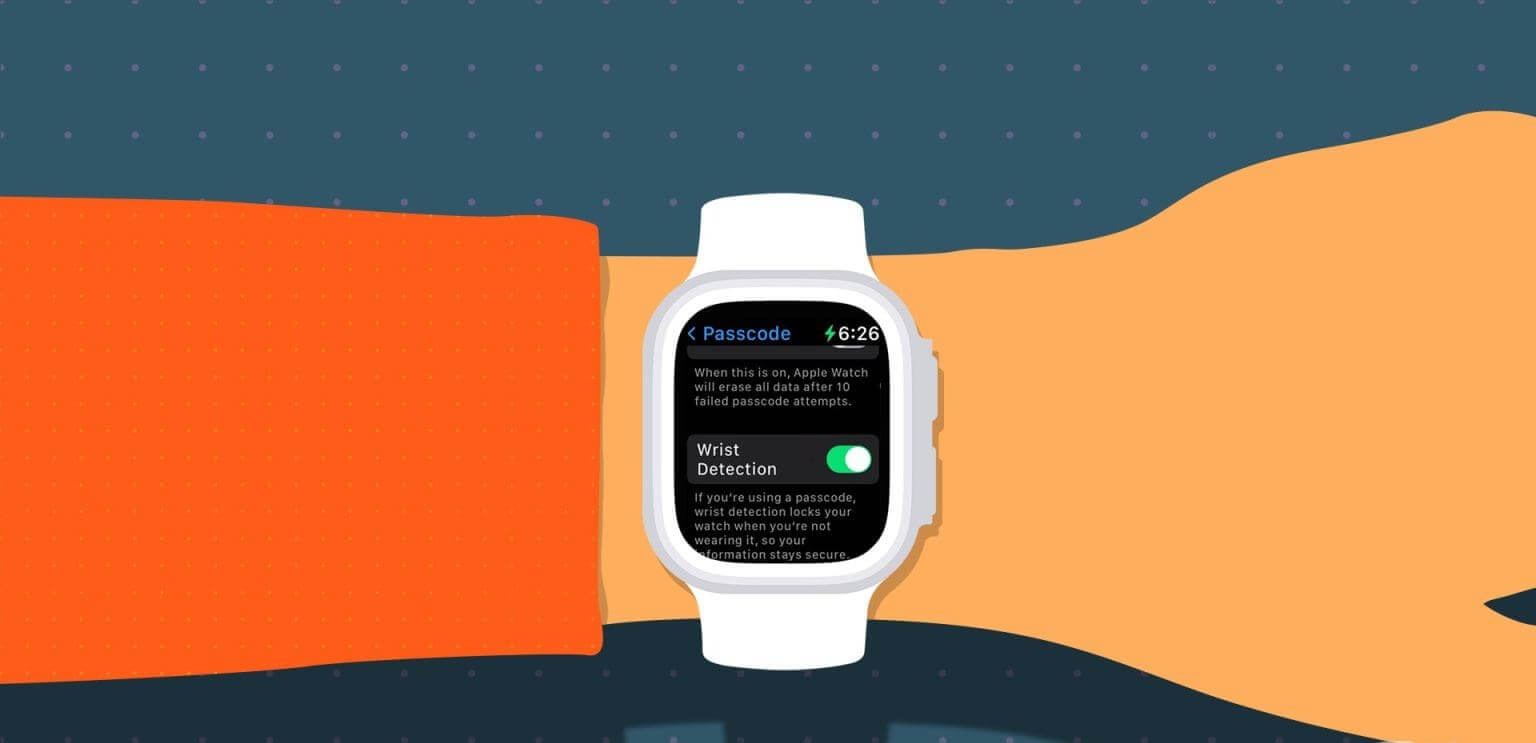
Although it's easy to automatically unlock your Apple Watch, disabling wrist detection can also cause some Apple Watch features to not work properly.
To better understand this, let's take a closer look at what wrist detection is and how you can enable or disable it on your Apple Watch.
What is wrist detection on Apple Watch?
As the name suggests, Wrist Detection uses specific sensors and gestures to detect when you're putting your watch on and taking it off. This can help customize your watch's functions, such as disabling your passcode, automatically turning on your Apple Watch screen when you move your wrist, and more, making it both secure and easy to use.
You must turn on wrist detection.
Most Apple Watches have wrist detection enabled by default. However, there are provisions for disabling it. But what does it entail? Let's find out.
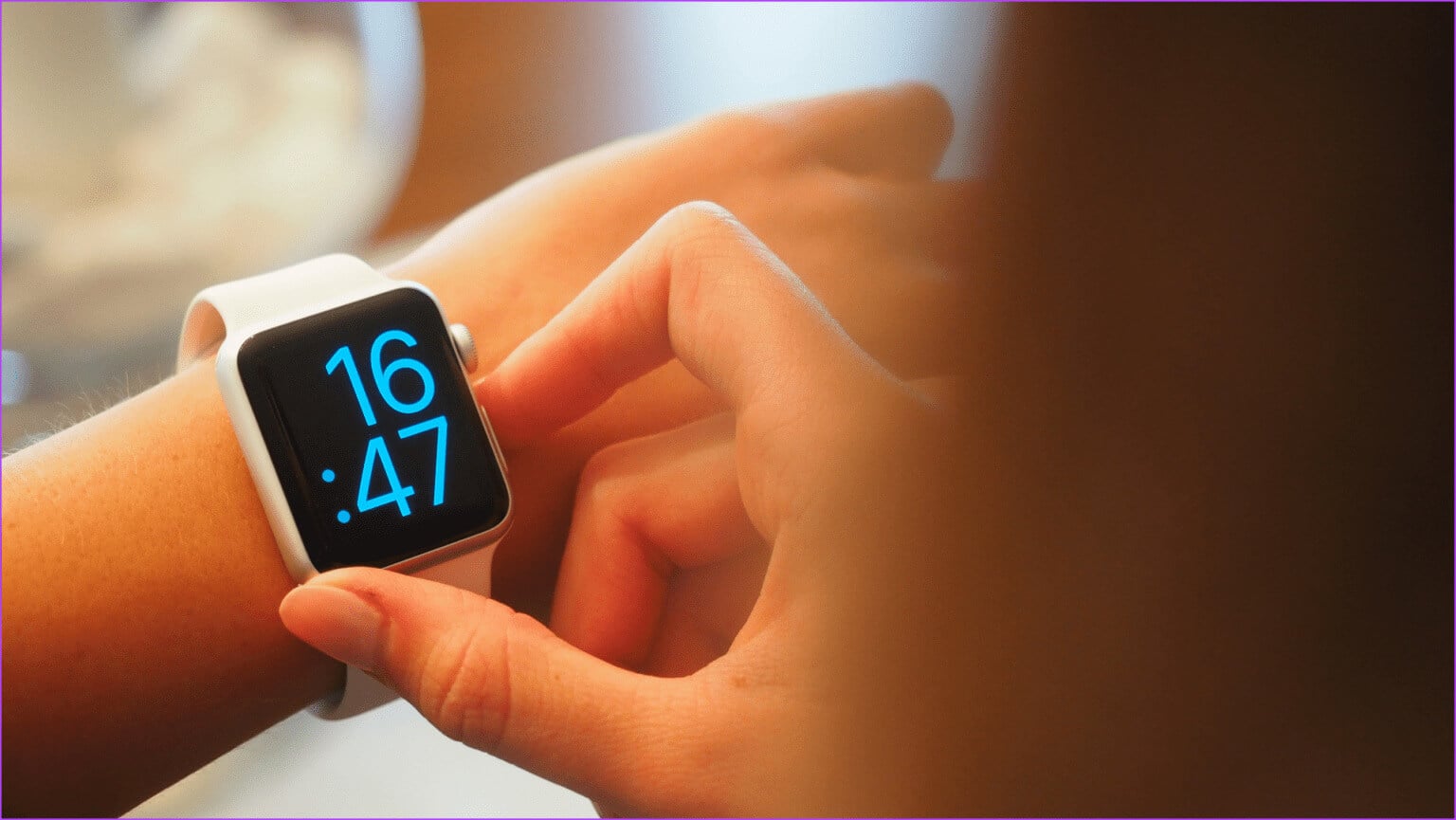
When you open your Apple Watch
Wrist Detection automatically unlocks your Apple Watch once it detects you're wearing it, saving you the hassle of repeatedly entering your Apple Watch passcode. Please note that you must have your passcode enabled to use this feature. On the other hand, unauthorized users can access your Apple Watch as it cannot detect who is wearing it.
Using Apple Pay on Apple Watch
Enabling wrist detection allows you to use Apple Pay without a passcode once it detects you're wearing your watch. Similarly, it ensures that your passcode is enabled for Apple Pay after you remove your watch. However, if this feature is turned off, you'll have to enter your passcode when using Apple Pay, regardless of whether you're wearing your watch.

Use the raise to wake feature
The Apple Watch screen automatically turns on when it detects movement using the Raise to Wake feature when wrist detection is turned on. Similarly, the watch screen turns off when it detects that you are no longer looking at the watch.
Although you can save battery power by using “Raise to Wake,” Disable "always on"However, wrist detection sensors may cause your Apple Watch battery to drain faster.
Apple Watch Notifications and Alerts
Wrist detection manages notifications and call alerts based on your wrist movement. These alerts may not be available on the watch screen once you remove your Apple Watch.
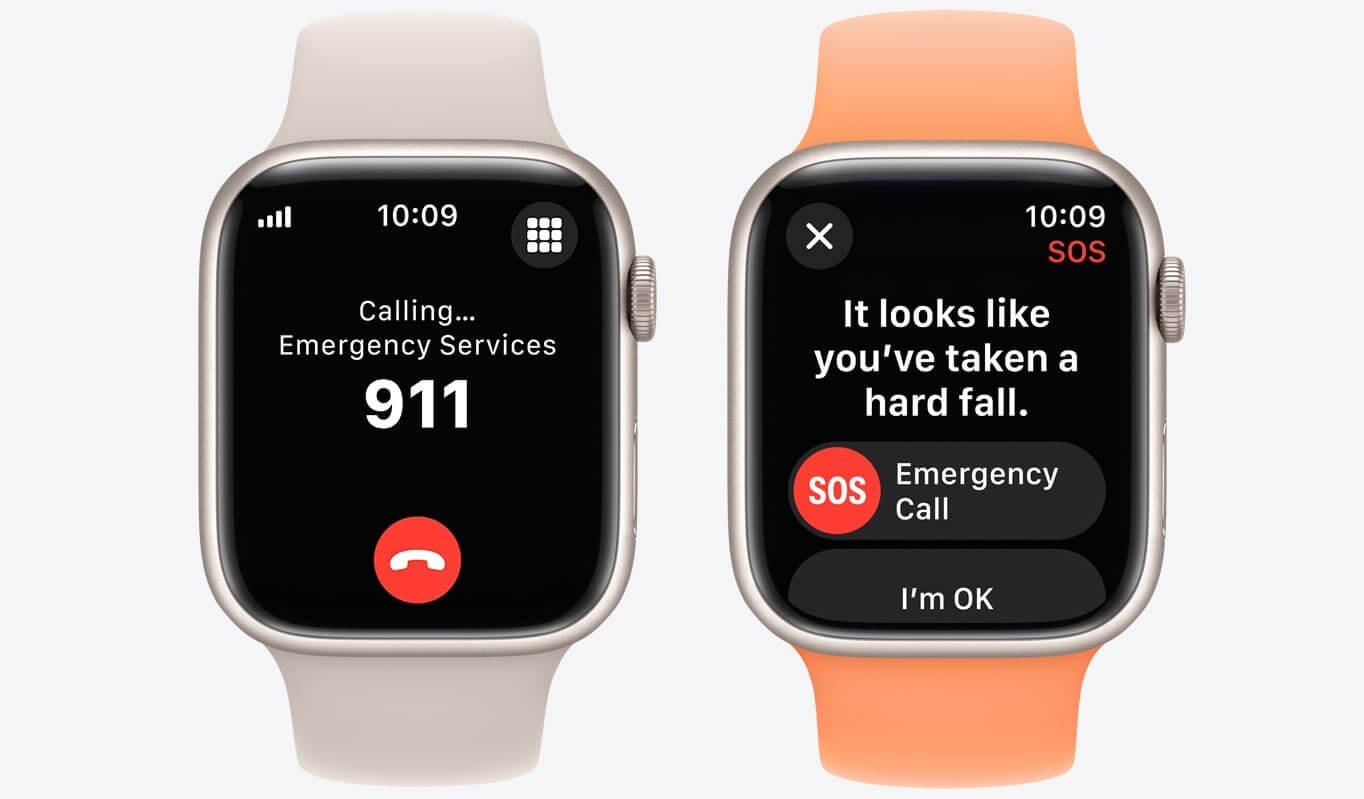
Use other Apple Watch features
Depending on your watch model, enabling wrist detection allows you to access Apple Watch features like: fall detection, AndHeart rate tracking, blood oxygen measurement, sleep tracking, activity measurement, respiratory rate measurement, auto-unlock, etc. These features will be disabled or partially unavailable once wrist detection is disabled.
Some limitations of wrist detection
Wrist detection sensors may not work properly if you have a tattoo on your wrist. Additionally, wrist detection may not be available if your Apple Watch is in Low Power Mode.
Now that we know more about what happens when we use or don't use wrist detection, let's take a look at how to manage wrist detection settings with your Apple Watch and iPhone.
How to turn on or off wrist detection
Although wrist detection is enabled by default, there may be times when you accidentally disable it from the settings menu. In this case, you can enable it manually. Follow the steps below to turn wrist detection on or off, if necessary.
Step 1: on Apple Watch, Click on digital Crown Once to open Application Library.
Tip: Check out our article if you: Digital Crown not working on Apple Watch.
Step 2: Here, click on Settings.
Step 3: Then scroll down and click on Passcode.
Note: If you have a specific passcode, enter it to access the passcode menu.
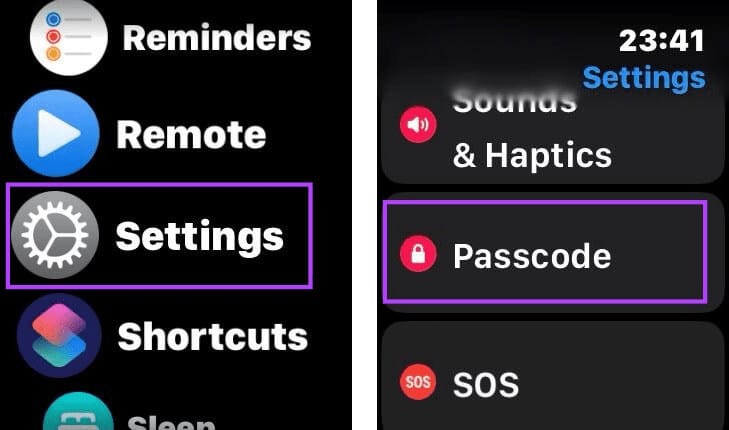
Step 4: Here, run toggle switch To detect the wrist.
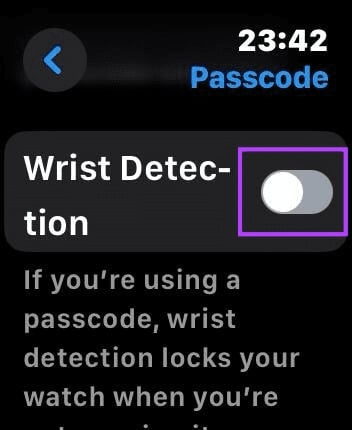
This will enable wrist detection. If you want to disable it, follow the steps above and turn off the Wrist Detection switch.
How to enable or disable wrist detection on your iPhone
Besides using your Apple Watch, you can enable or disable wrist detection from the Watch app on your iPhone. Once your settings are synced, this feature will be adjusted appropriately on your Apple Watch as well. Here's how.
Step 1: On a device iPhone Your, open the Watch app.
Step 2: Here, scroll down and tap on Passcode.
Note: If you set a passcode, enter it on your Apple Watch to access the passcode settings menu on your iPhone.
Step 3: Here, turn on the switch. wrist discovery.
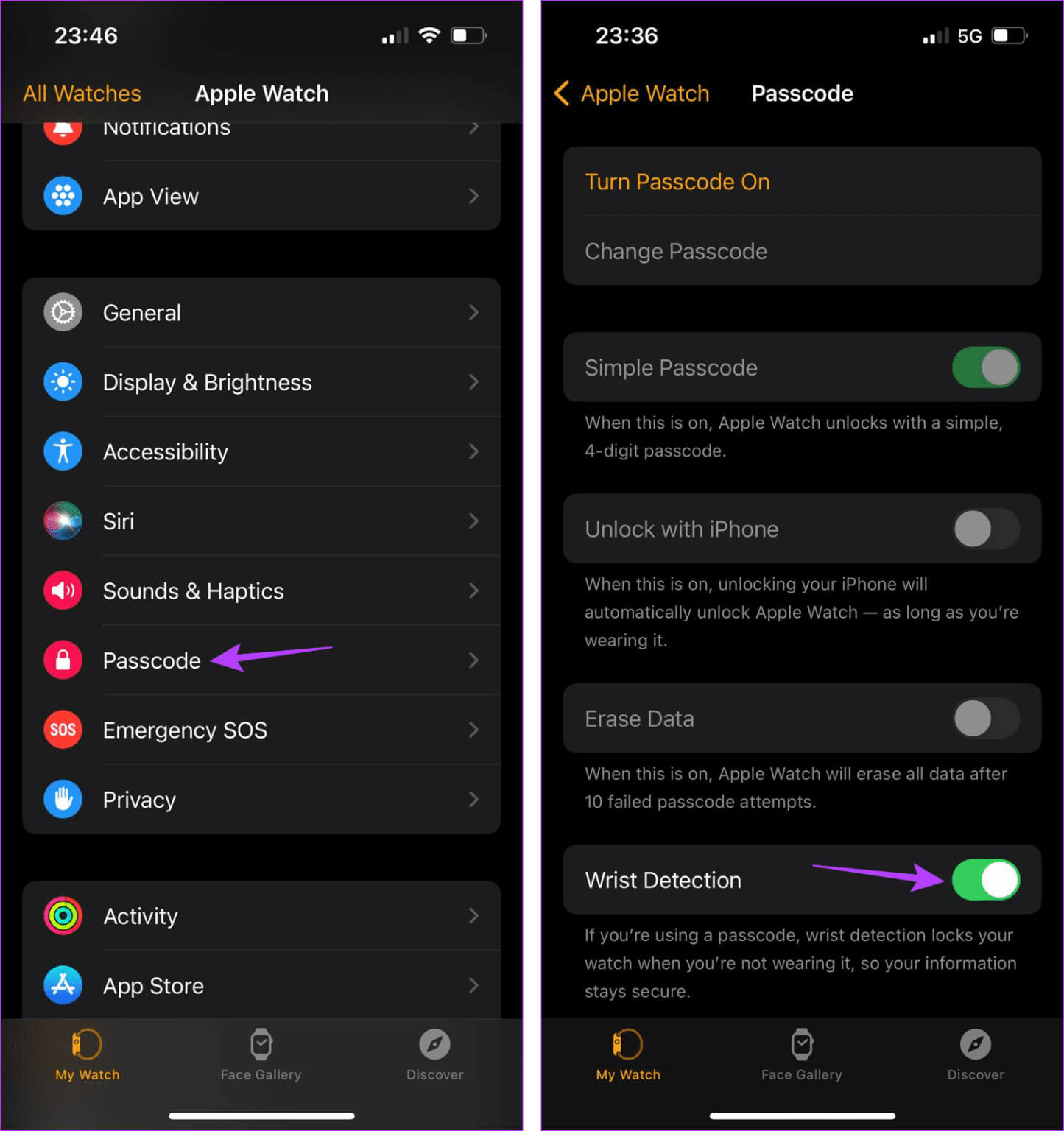
This will immediately enable wrist detection. However, if you want to disable it, follow the steps below.
Disable wrist detection on Apple Watch
Step 1: Open Watch app on your iPhone.
Step 2: Click on PasscodeIf necessary, enter. Passcode Related on Apple Watch.
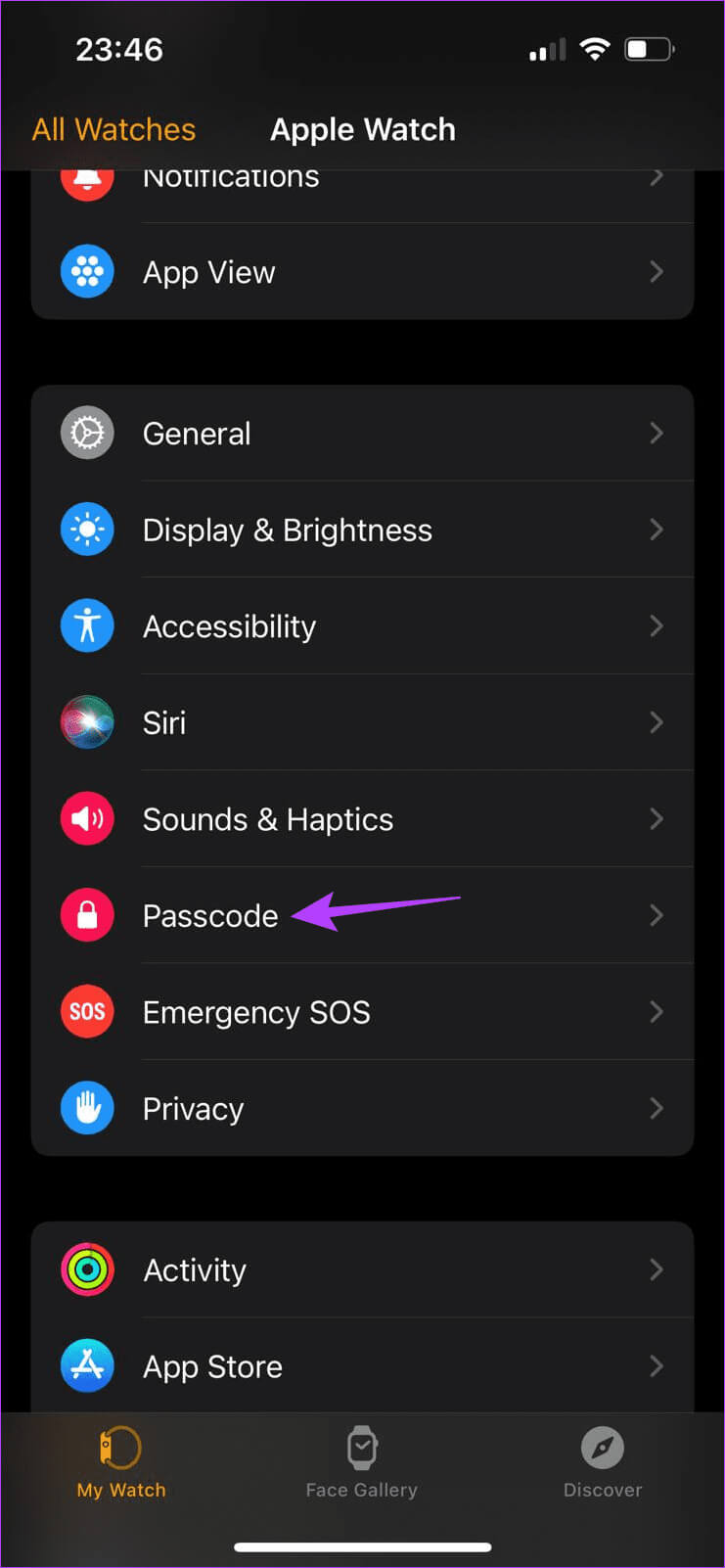
Step 3: Scroll down and turn off the switch. wrist discovery.
Step 4: Click on turning off For confirmation.
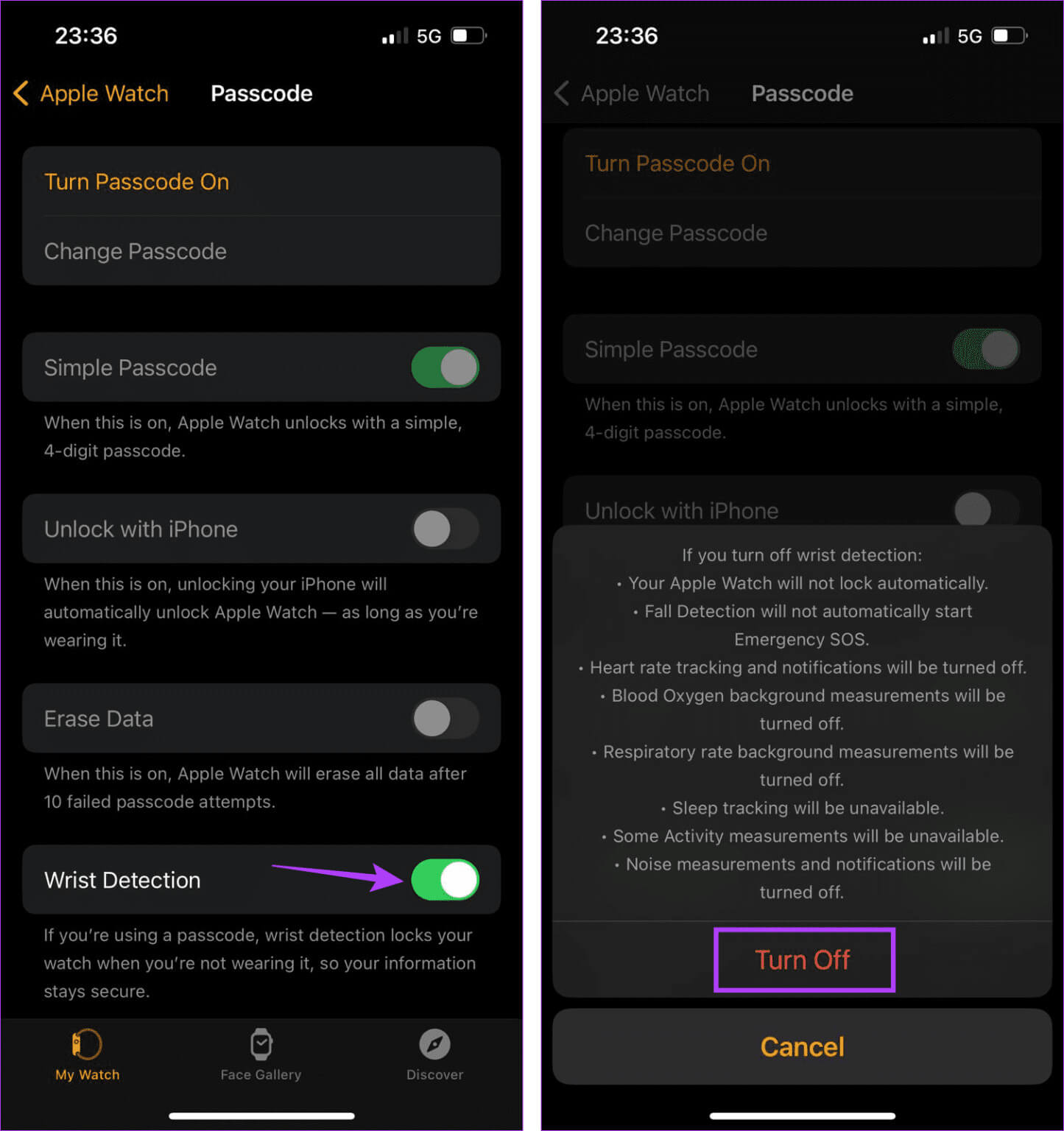
This will disable wrist detection. Once completed, you may not be able to access some Apple Watch features.
Frequently asked questions about wrist detection on Apple Watch
Q1. Does wrist detection affect any other Apple Watch features?
The answer: Yes, turning off wrist detection will affect and may even disable other features, such as activity metrics, heart rate tracking, notifications, fall detection, etc. Additionally, if you have set a passcode, you'll be prompted to enter it every time you use Apple Pay when wrist detection is turned off.
Q2. How many times can you enable or disable the wrist detection feature?
The answer: You can enable or disable your wrist detection feature whenever you want.
Q3. Does low power mode turn off wrist detection?
The answer: At Turn on Low Power Mode on Apple WatchIt disables some other features to save battery power. This can cause wrist detection to not work properly or even cause your Apple Watch to turn off.
Do more with your Apple Watch
Wrist detection can help secure your Apple Watch while giving you access to some app features that might not otherwise be available. We hope this article helps you better understand wrist detection and how to enable or disable it on your Apple Watch.










